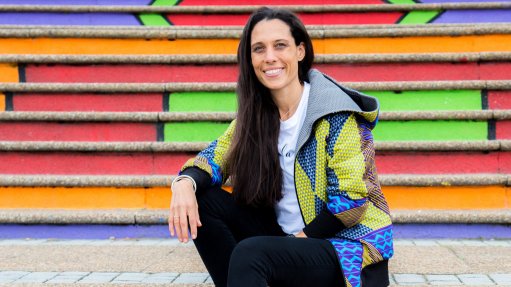
CATHERINE MORRIS A waste-free world is a possibility for the future
The idea of a circular economy is now starting to pique interest in the packaging industry, although the mechanism of biodegradability has been operational for hundreds of millions of years, says GREEN HOME Food Packaging MD and owner Catherine Morris.
The concept highlights the way in which the biodegradation process cycles nutrients and materials in a waste-free loop.
Morris highlighted this at the Future of Packaging conference held in September last year at the Cape Town International Convention Centre, where she was asked to speak at a session dealing with the future of packaging in a sustainable green economy.
The session, sponsored by aluminium foil container manufacturer Hulamin Containers, was fronted by various leaders in the green drive as well as Department of Environmental Affairs waste management director Eddie Hanekom.
Morris advocated that product materials must be able to re-enter the system after use to be part of a truly circular economy.
She enthused to Engineering News that this is what nature does – through the mechanism of biodegradability.
Plant-based materials are naturally biodegradable, and they can be broken down, through composting, into, for example, carbon, water, nitrogen and oxygen. These basic building blocks can then be used to build new plants, and new life.
Morris says GREEN HOME Food Packaging believes that food packaging should be either reusable or made from compostable and renewable materials. “We can eliminate waste and end the practice of sending organic waste to landfill if we use reusable and compostable packaging and increase composting infrastructure.”
The idea of compostable packaging is still a new and interesting space, hence there is a lot to be learned about what can be designed and how. “There is huge scope for exploring how agricultural by-products, and fast-growing plants like hemp, can be used in the creation of circular systems,” adds Morris.
Hanekom was joined at the conference by waste management company Y-waste owner and self-proclaimed composter Emile Fourie in highlighting the need for increased composting to ease pressure on landfills and process organic waste in the most sustainable way.
GREEN HOME Food Packaging sources the most sustainable plant-based and renewable raw materials. These include Forest Stewardship Council, and Sustainable Forestry Initiative-certified materials, recycled sugar cane fibre that is certified to be free of genetically modified organisms, and fast-growing bamboo. The company’s products are manufactured in South Africa and China.
“We try to remind people of this time-tested and highly beneficial mechanism, and the power it has to create a waste-free world, with everything we do,” concludes Morris.